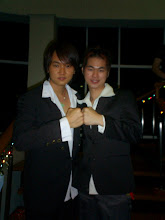By Luke Timmerman
March 31 (Bloomberg) -- Short-term starvation techniques may help shield healthy cells from the damaging side effects of chemotherapy, while still leaving tumor cells vulnerable to treatment, researchers said.
A series of laboratory experiments in yeast, mice and human cells found that reducing the food supply for as long as 60 hours helped toughen normal cells and make chemotherapy work better on tumors, researchers said today in the Proceedings of the National Academy of Sciences.
Scientists have known that limiting calorie consumption can help mice and other organisms live longer and avoid developing tumors. The new research suggests calorie restriction may also enhance chemotherapy for cancer patients. About 1.4 million people in the U.S. will be diagnosed with the disease this year, according to the American Cancer Society.
``The potential here is that you could give chemotherapy three times more frequently with very little side effects,'' said Valter Longo, a gerontologist at the University of Southern California, in a telephone interview. Longo was the study's senior author.
The experiments looked at how healthy cells and tumors responded to being deprived of glucose, a simple sugar. When yeast cells were genetically modified to be protected from toxins and were cut off from a glucose broth, they were 1,000 times better protected against damage from oxygen or chemotherapy drugs than yeast cells with an amplified tumor gene.
Test With Mice
A separate experiment confirmed the finding in mice. When put into the starving state, about 80 percent of healthy brain cells survived a high dose of cyclophosphamide, a chemotherapy drug. Only 20 percent of the cells survived the chemotherapy when they were given normal amounts of sugar. Brain cancer cells from mice and humans weren't helped when they were starved, researchers said.
Scientists who specialize in aging think the starvation technique may work because it forces cells into a slow-down mode to brace themselves against stresses from free radical oxygen, or toxins like chemotherapy, Longo said. Tumor cells are unable to slow down because they have genes turned on that make them grow and divide uncontrollably, Longo said.
The consistency of the findings across multiple species has caught the attention of cancer doctors at USC's Norris Comprehensive Cancer Center in Los Angeles. Doctors there are designing a clinical trial of as many as 20 cancer patients, to see how they perform on chemotherapy after fasting for a short period, compared with those on a normal diet, Longo said.
The clinical trial should begin within six months, Longo said.
Counterintuitive
The finding sounded counterintuitive at first to cancer physicians, said David Quinn, the head of the genitourinary cancer program at USC's Norris center, in a telephone interview.
Many cancer doctors recommend patients eat before chemotherapy because they can lose their appetite afterwards. About one-third of patients on chemotherapy get cachexia, or serious fatigue and muscle atrophy, from the drugs, and it wouldn't be safe for them to fast, Quinn said.
He cautioned that the human trial must be carefully designed to translate the work from animals.
``Like Evel Knievel, I have to say, `Don't try this at home,''' Quinn said.
``This is not something any drug company will be interested in, but the data is intriguing and I think it's an important question we should ask in a clinical trial,'' Quinn said.
The trial is being paid for by the cancer center, which is supported by the National Cancer Institute.
To contact the reporter on this story: Luke Timmerman in San Francisco at ltimmerman@bloomberg.net

No comments:
Post a Comment